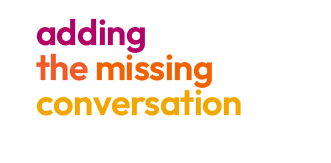Democracy, as we know it, is breaking down. The structures that once upheld public decision-making are being overtaken, leaving people disillusioned, powerless, and trapped in a system that no longer represents them. Jim Rough, the founder of the Wisdom Council Process and the visionary behind Wise Democracy, recently posted on LinkedIn about this crisis:
“Democracy in America is collapsing. A new system is emerging, Autocracy, which dispenses with the rule of law, has state-approved media and religion, and a new caste system based on loyalty to the ‘Dear Leader.’ […] But I don’t see these efforts working to stop the slide to autocracy.”
Jim’s solution is not another political reform or resistance movement. Instead, he proposes something radically different—the creation of large-scale Wisdom Councils that engage the whole population in a new kind of conversation: choice-creating.
This isn’t just about governance. It’s about replacing outdated action-reaction politics with an emergent process where society itself organizes through creativity. The old system is built on rigid dualism—yes/no decisions, political debates, left vs. right divisions. What Jim envisions is a completely new societal paradigm—one that aligns with the deeper nature of reality itself.
Beyond Yes/No Politics: An approach to collective Intelligence
In modern physics, the famous double-slit experiment reveals something astonishing: when particles are observed, they behave like fixed objects (particles). But when left unmeasured, they behave like waves—existing in multiple possibilities at once. Only when an observer intervenes does a single reality “collapse” into being. You might have heard about this duality and to me it is astonishing over and over again.
Traditional democracy treats people like particles—separate, static units with fixed opinions that must be counted in elections or represented in debates. But in reality, people are not static—they are constantly evolving, shifting, and capable of profound transformation when placed in the right conditions.
When citizens participate in Wisdom Councils using Dynamic Facilitation, something extraordinary happens:
- They stop defending fixed positions and start engaging from a deeper, more creative place.
- Instead of debating, they enter a flow state of collective intelligence, where new solutions emerge spontaneously.
- They stop being particles and start gloeinh like a wave—interacting, merging, and forming entirely new ideas that no one could have predicted beforehand.
This is what Jim calls Choice-Creating. It is not debate, deliberation, or voting—it is a quantum leap in how human beings think and make decisions together.
The Role of Narrative
The reason our current political systems are failing is not just because of corruption or bad leadership—it’s because the entire framework of governance is outdated. It relies on structures that assume decisions must be made in a linear, competitive way.
But real societal change doesn’t come from decisions alone—it comes from the stories people tell each. other about life, the narratives they live by.
- The autocrats and reactionary forces that are gaining power do so through strong narratives—stories of fear, division, and control.
- But these narratives are weak when exposed to the wisdom of niche realities, real life if you will—because they are based on fear, not wisdom and creativity.
- Wisdom Councils don’t just generate better solutions—they generate better narratives.
- And when a story is strong enough, it self-propagates—spreading through culture, bypassing resistance, and shifting consciousness without force.
This is where media and public broadcasting come in.
Prime-Time Wisdom: The Role of TV, Radio, and Digital Media
Public value broadcasting—such as PBS, NPR, BBC, and other public service networks—has a unique opportunity to shift the public narrative by broadcasting these emerging stories in real time. Instead of simply reporting on crises, political debates, or social divisions, these media outlets could showcase the birth of a new paradigm in society.
- Live or recorded broadcasts of Wisdom Councils could be structured into weekly or monthly prime-time programming, bringing the public into the experience of choice-creating.
- Rather than simply observing, media would participate in shaping the unfolding story—telling the narrative as it naturally emerges from the group.
- Online media platforms could create interactive experiences, allowing the audience to engage, vote, and contribute to the ongoing wisdom-building process.
This is not just news—it is an unfolding narrative of democratic transformation.
Engaging Decision-Makers and Funders
For media executives, producers, and journalists, this is public service at its best. This is beyond partisan politics—this is about offering the public a new way to think, engage, and participate. Networks dedicated to truth and social impact—like NPR, PBS, BBC, and independent documentary producers—should be the first to recognize the power of bringing Wisdom Councils to mass audiences.
For foundations and philanthropists, this represents an opportunity to fund the next stage of human governance. Instead of funding political campaigns, advocacy groups, or incremental reforms, this is seeding an entirely new way of thinking that will outlive the old system.
Beyond Elections: A Self-Sustaining System of Governance
Jim Rough has spent decades refining the Wise Democracy Project, which has already been adopted in Austrian states like Vorarlberg, where elements of Wisdom Councils have been integrated into governance. But this is just the beginning.
What would a fully realized Wisdom Democracy look like?
- No more elections based on dualistic thinking. Instead, we hold regular Wisdom Councils where citizens engage in deep, creative choice-creating.
- No more politics driven by special interests. Instead, policy is shaped by narratives that emerge from the wisdom of the whole.
- No more leadership based on power struggles. Instead, we cultivate leadership that is fluid, emergent, and in service to collective well-being.
Final Thought: A Civilization in Transition
We are at a civilizational tipping point. The old structures are crumbling under their own weight. What replaces them is not yet determined.
The choice is between chaos and emergence. Between regression into fear or an expansion into wisdom. Between particles and waves.
We have the answer. Now we must bring it into being—through media, storytelling, and public engagement on an unprecedented scale.
